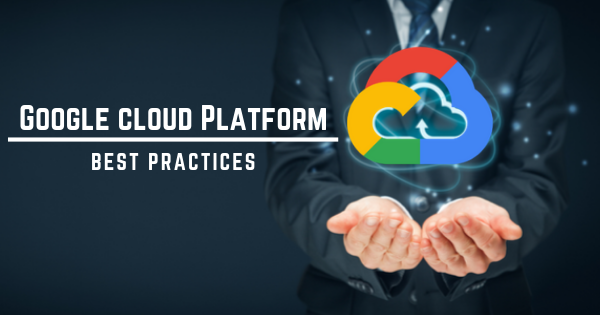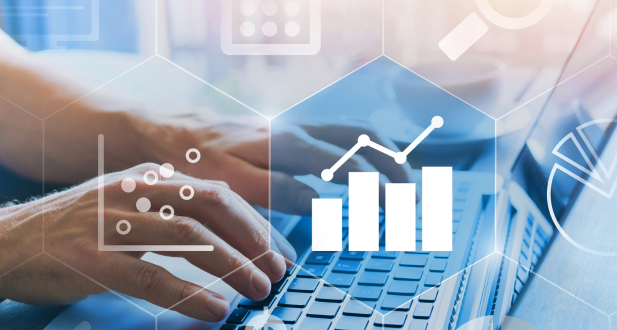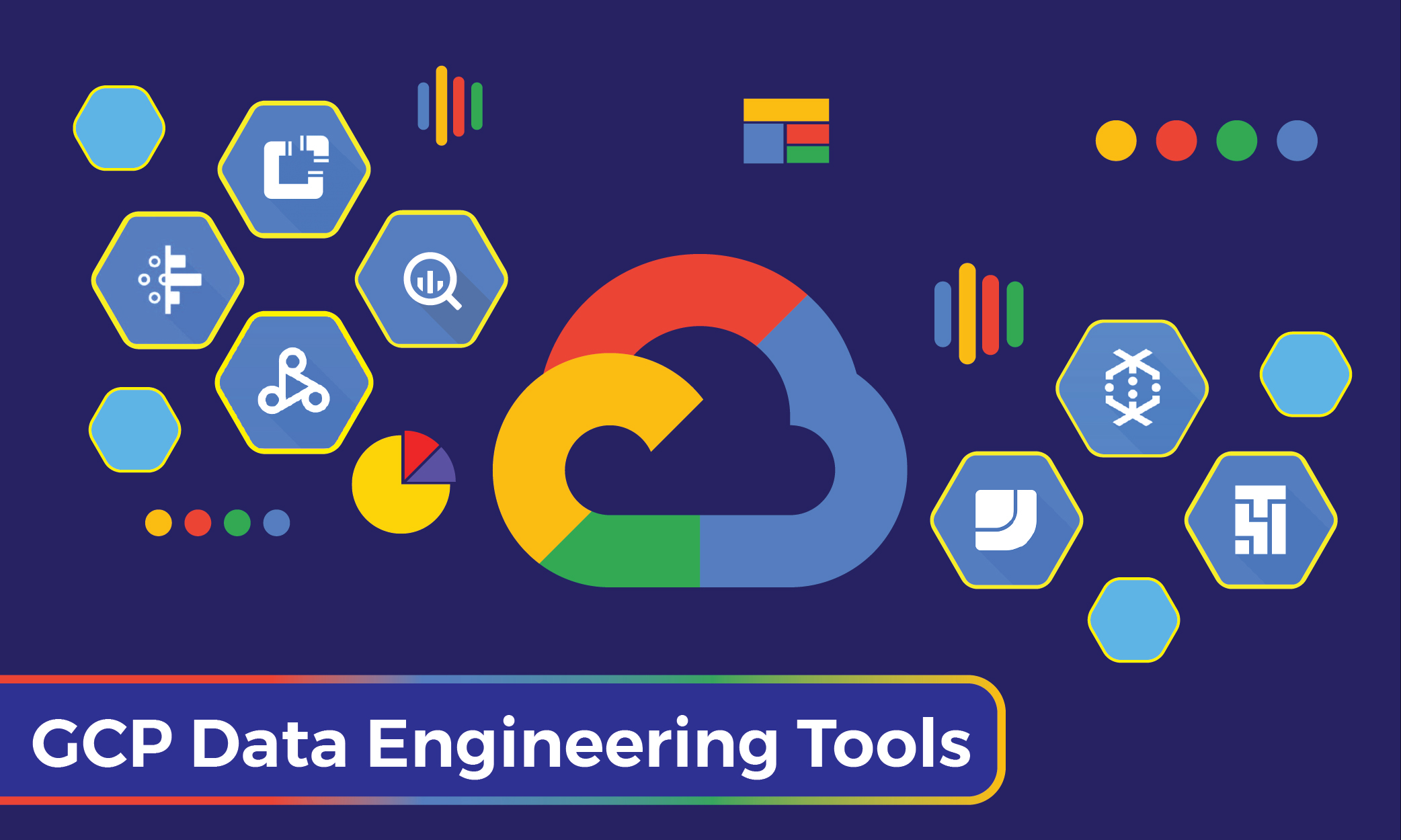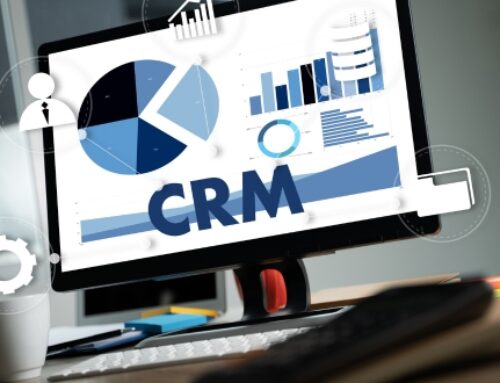In the rapidly evolving landscape of technology, data has become the lifeblood of businesses. The ability to harness and derive meaningful insights from vast amounts of data is a competitive advantage that organizations are keen to leverage. Google Cloud Platform (GCP) has emerged as a frontrunner in providing robust and scalable solutions for data analytics. In this comprehensive guide, we will delve into the world of data analytics with GCP, exploring its key components, tools, and best practices.
Overview of GCP
Google Cloud Platform (GCP) stands as a comprehensive suite of cloud computing services, meticulously crafted by Google to cater to diverse business needs. This platform encompasses an extensive array of tools and services designed for computing, storage, machine learning, and data analytics. What sets GCP apart is its infrastructure, which is built upon the same robust foundation that powers Google’s globally acclaimed products, such as Google Search and YouTube. This ensures a level of reliability and performance that businesses can trust for their cloud computing requirements.
Key Features of GCP for Data Analytics:
Scalability:
One of the standout features of GCP Data Analytics is its elastic scalability. This allows organizations to dynamically adjust their computing resources based on fluctuating demands. Whether facing sudden spikes in traffic or experiencing periods of reduced activity, GCP enables businesses to scale their resources up or down seamlessly. This scalability not only enhances operational efficiency but also optimizes costs by ensuring that computing resources are aligned with actual needs.
Managed Services:
GCP distinguishes itself by offering a suite of fully managed services. This means that businesses can leverage a variety of tools and resources without being burdened by the operational complexities associated with managing them. With GCP’s managed services, organizations can focus on their core competencies, leaving the management and maintenance of infrastructure, databases, and other essential components in the capable hands of Google’s experts. This results in increased agility and the ability to allocate more time and resources to innovation and business development.
Security:
Security is a paramount concern in the realm of cloud computing, and GCP addresses this concern with Google’s renowned infrastructure security measures. Google has a proven track record of implementing robust security protocols, ensuring the confidentiality and integrity of data stored and processed on the platform. This commitment to security is crucial for businesses handling sensitive information, providing them with the peace of mind that their data is safeguarded against unauthorized access and breaches. GCP’s security features contribute to building trust among users and maintaining the platform’s credibility in the competitive cloud computing landscape.
GCP emerges as a powerful and reliable cloud computing solution, offering not only a broad spectrum of services but also key features such as scalability, managed services, and robust security. These features collectively position GCP as a valuable platform for organizations looking to harness the potential of cloud computing for their data analytics and business operations.
GCP Data Analytics Tools
BigQuery
BigQuery stands as a cornerstone within Google Cloud Platform’s (GCP) data analytics arsenal. It operates as a fully-managed, serverless data warehouse, harnessing the formidable processing power of Google’s infrastructure. Tailored for real-time analytics on extensive datasets, BigQuery excels in tasks such as business intelligence and data exploration. Leveraging SQL queries, it empowers users to glean insights swiftly, contributing to the efficiency of data-driven decision-making processes.
-
Cloud Dataflow
A dynamic addition to GCP’s toolkit, Cloud Dataflow serves as a comprehensive, fully-managed solution for both stream and batch processing. Its flexibility allows users to architect and execute data processing patterns, seamlessly transitioning between batch and streaming data. This adaptability positions Cloud Dataflow as a versatile asset for organizations seeking real-time analytics capabilities, underscoring its importance in the contemporary data landscape.
-
Dataprep
Integrated into GCP through a partnership with Trifacta, Dataprep offers a cloud-based service specifically designed for the intricate tasks of exploring, cleaning, and preparing structured and unstructured data for analysis. Its distinguishing feature lies in a visual interface, simplifying the otherwise intricate process of data wrangling. By facilitating user-friendly interactions with data transformation, Dataprep enhances accessibility for analysts and data scientists alike.
-
Cloud Dataproc
Cloud Dataproc emerges as a high-speed, user-friendly, fully managed cloud service tailored for running Apache Spark and Apache Hadoop clusters. This service is a catalyst for efficiently processing large datasets, contributing significantly to cost-effectiveness. The ease of use associated with Cloud Dataproc empowers organizations to harness the capabilities of powerful data processing frameworks without the burden of intricate setup and management.
-
Data Studio
Completing the GCP data analytics suite, Data Studio functions as a robust business intelligence and data visualization tool. It empowers users to craft interactive and shareable dashboards, enhancing the communication of insights across teams. Seamlessly integrated with other GCP services, Data Studio facilitates the visualization of data stored in BigQuery and various other sources. Its role extends beyond mere analysis, fostering a collaborative and insightful environment for data-driven decision-making processes.
Building a Data Pipeline on GCP
Data Ingestion:
The initial step in any data analytics endeavor involves ingesting data into the platform. Google Cloud Platform facilitates this through a variety of solutions. Cloud Storage is highlighted as a suitable choice for batch processing, offering scalable and durable storage. Additionally, Pub/Sub is emphasized for handling streaming data, providing a real-time and scalable messaging service for ingesting and delivering event data.
Data Processing:
Once the data is ingested, the next critical step is processing. Two key tools, Cloud Dataflow and Cloud Dataproc, are introduced for this purpose. Cloud Dataflow is identified as a valuable tool for processing both batch and streaming data, offering a fully managed service with Apache Beam. Cloud Dataproc, on the other hand, is mentioned as a solution specifically designed for processing batch data, utilizing Apache Spark and Hadoop.
Data Storage:
Choosing an appropriate data storage solution is a pivotal decision in the pipeline. GCP provides a range of storage options tailored to different needs. Cloud Storage is recommended for object storage, offering durability and accessibility. Bigtable is highlighted as a NoSQL database solution suitable for large analytical and operational workloads. Lastly, BigQuery is identified as a data warehousing solution, allowing for fast SQL queries and interactive analysis of large datasets.
Data Transformation:
Data transformation and preparation are crucial steps in the data pipeline. Here, Dataprep is introduced as a tool that plays a significant role in this phase. Noteworthy is its user-friendly interface, which enables users to clean and shape data without the need for intricate coding. This emphasis on accessibility suggests a focus on making data transformation tasks more approachable for a broader range of users.
Data Analysis and Visualization:
With the data processed and transformed, the document suggests performing in-depth analysis using tools provided by GCP. BigQuery is mentioned for its capabilities in running fast SQL queries on large datasets, while Data Studio is introduced as a tool for visualizing the results. This section underscores the importance of not only processing and transforming data but also extracting meaningful insights through analysis and presenting them in a visually comprehensible manner.
Real-world Use Cases
Retail Analytics:
In the realm of retail analytics, Google Cloud Platform (GCP) emerges as a powerful tool for enhancing business operations. Retailers can leverage GCP to delve into customer segmentation, gaining a comprehensive understanding of consumer behavior and preferences. Through advanced data analytics, businesses can tailor marketing strategies, optimize product placement, and enhance the overall shopping experience. Additionally, GCP facilitates demand forecasting, enabling retailers to anticipate trends and stock inventory accordingly. With features such as machine learning models, GCP empowers retailers to make data-driven decisions, ultimately improving efficiency and maximizing profits.
Healthcare Analytics:
Within the healthcare sector, GCP proves invaluable for analytics that extend beyond traditional boundaries. GCP’s capabilities in healthcare analytics are prominently demonstrated in predicting patient outcomes, optimizing resource allocation, and advancing personalized medicine. By analyzing vast datasets, GCP assists healthcare professionals in predicting patient trajectories, allowing for proactive and personalized care. Furthermore, the platform aids in efficient resource allocation, ensuring that medical facilities operate optimally. The integration of GCP in healthcare analytics signifies a transformative shift towards data-driven decision-making in the pursuit of better patient outcomes and resource utilization.
Financial Analytics:
Financial institutions benefit significantly from GCP’s prowess in financial analytics. The platform plays a pivotal role in fraud detection, helping organizations identify and mitigate fraudulent activities in real-time. GCP’s advanced analytics capabilities are harnessed for risk management, allowing financial institutions to assess and mitigate potential risks more effectively. Additionally, GCP facilitates customer churn analysis, enabling financial institutions to understand and address factors that contribute to customer attrition. Through these applications, GCP empowers financial organizations to operate securely, make informed decisions, and enhance overall customer satisfaction.
IoT Analytics:
The Internet of Things (IoT) has ushered in a new era of connectivity, and GCP stands as a robust solution for analyzing the massive volumes of data generated by IoT devices. GCP’s support for IoT analytics allows organizations to extract meaningful insights from the diverse and continuous streams of data produced by interconnected devices. Whether it’s monitoring device performance, identifying patterns, or predicting maintenance needs, GCP provides the tools necessary for efficient analysis. This enables organizations to optimize their IoT ecosystems, enhance operational efficiency, and make data-driven decisions to drive innovation in diverse sectors such as manufacturing, transportation, and smart cities.
Section 5: Best Practices and Challenges
Best Practices for GCP Data Analytics

Data Analytics with GCP
In the realm of Google Cloud Platform (GCP) data analytics, implementing robust data governance practices stands out as a key best practice. By establishing stringent data governance measures, organizations can uphold data quality, fortify security, and ensure compliance with regulatory standards. This involves defining clear data ownership, access controls, and monitoring mechanisms to maintain the integrity and confidentiality of the data being processed.
Cost optimization emerges as another crucial best practice. Organizations can enhance cost efficiency by embracing serverless services and adopting a strategy of right-sizing resources based on actual demand. This approach ensures that computational resources are allocated optimally, preventing unnecessary costs and improving overall resource utilization in GCP data analytics workflows.
Collaboration plays a pivotal role in achieving success in GCP data analytics. It is imperative to foster a culture of collaboration among data engineers, data scientists, and analysts. By breaking down silos and encouraging cross-functional teamwork, organizations can achieve a more holistic approach to data analytics. This collaborative effort enables a comprehensive understanding of data requirements, leading to more effective and insightful analyses.
Challenges in GCP Data Analytics
One prominent challenge in GCP data analytics is the existence of data silos. Overcoming these silos is essential for ensuring a seamless flow of data across the organization. Data silos often result in fragmented information and hinder the ability to derive comprehensive insights. Organizations need to implement strategies and technologies that facilitate the integration and exchange of data, promoting a unified and coherent data environment.
Another challenge lies in addressing the skill gap within organizations. As the landscape of GCP data analytics evolves, there is a growing need to equip teams with the necessary skills and knowledge. This involves providing training programs and resources to enhance proficiency in utilizing GCP data analytics tools. Bridging the skill gap ensures that teams can fully leverage the capabilities of GCP for effective data analysis and decision-making.
Security concerns represent a critical challenge associated with cloud-based data analytics platforms on GCP. Organizations must prioritize mitigating these concerns by implementing robust security measures. This involves adopting encryption protocols, access controls, and monitoring mechanisms to safeguard sensitive data throughout the analytics process. By addressing security concerns, organizations can instill confidence in stakeholders and uphold the integrity of their GCP data analytics operations.
Future Trends in GCP Data Analytics
Machine Learning Integration:
One of the prominent future trends in Google Cloud Platform (GCP) data analytics is the increasing integration of machine learning capabilities. As organizations strive to gain a competitive edge, the synergy between data analytics and machine learning proves invaluable. This integration enables businesses to extract more predictive and prescriptive insights from their data. By leveraging machine learning models within the GCP ecosystem, organizations can enhance their ability to forecast trends, identify patterns, and make data-driven decisions. The seamless integration of machine learning into GCP’s data analytics framework contributes to a more comprehensive and sophisticated approach to data analysis.
Edge Analytics:
Another significant trend shaping the future of GCP data analytics is the emergence of edge analytics. With the rise of the Internet of Things (IoT) and the increasing volume of data generated at the edge, there is a growing need to analyze information closer to its source. GCP’s adoption of edge analytics allows organizations to process data locally, reducing latency and enhancing real-time decision-making capabilities. This trend aligns with the demand for quicker insights and more agile responses to data, particularly in industries where timely actions are critical. The integration of edge analytics into GCP data analytics marks a pivotal shift in the approach to handling decentralized data sources.
Continued Innovation:
Google Cloud Platform remains at the forefront of technological advancement, and its commitment to innovation is a driving force behind the future of GCP data analytics. As technology evolves, so does the need for cutting-edge features and services. Google’s ongoing commitment to innovation ensures that GCP users benefit from a continuous stream of improvements, enhancements, and novel solutions in the realm of data analytics. The sustained innovation within GCP translates into a dynamic platform that can adapt to emerging trends, evolving business needs, and the ever-changing landscape of data analytics. Users can anticipate a steady influx of new tools and capabilities, reinforcing GCP’s position as a leading platform for sophisticated data analysis.
Conclusion
In conclusion, Google Cloud Platform offers a comprehensive suite of tools and services for data analytics, empowering organizations to unlock the full potential of their data. From data ingestion to visualization, GCP provides a seamless and scalable environment for analytics projects. As the landscape of data analytics continues to evolve, GCP remains at the forefront, driving innovation and helping businesses turn data into actionable insights.
Frequently Asked Questions
Data Analytics is the process of examining, cleaning, transforming, and modeling data to derive useful information, draw conclusions, and support decision-making.
GCP offers services such as BigQuery for data warehousing and analytics, Dataprep for data preparation, Dataflow for stream and batch processing, and others.
BigQuery is a fully-managed, serverless data warehouse that enables super-fast SQL queries using the processing power of Google’s infrastructure. It stores data in a columnar format for efficient querying.
You can load data into BigQuery using various methods, including batch loading from Cloud Storage, streaming inserts, and direct transfers from other Google services like Google Sheets.
Cloud Dataprep is a cloud-based service for visually exploring, cleaning, and preparing structured and unstructured data for analysis. It offers a user-friendly interface for data wrangling tasks.
Cloud Dataflow is a fully-managed service for stream and batch processing. It supports both Apache Beam SDKs for defining and executing data processing pipelines.
Google Cloud Storage is a scalable object storage service. It is used to store and retrieve large amounts of data, making it suitable for data lakes and as a source or destination for data analytics workflows.
Yes, GCP provides client libraries and APIs for Python, enabling you to integrate Python scripts and applications with various data analytics services.
GCP employs multiple layers of security, including encryption in transit and at rest, Identity and Access Management (IAM) controls, and audit logging to ensure data security in analytics processes.
Cloud Composer is a fully-managed workflow orchestration service. It helps you automate, monitor, and manage data analytics workflows using Apache Airflow.








